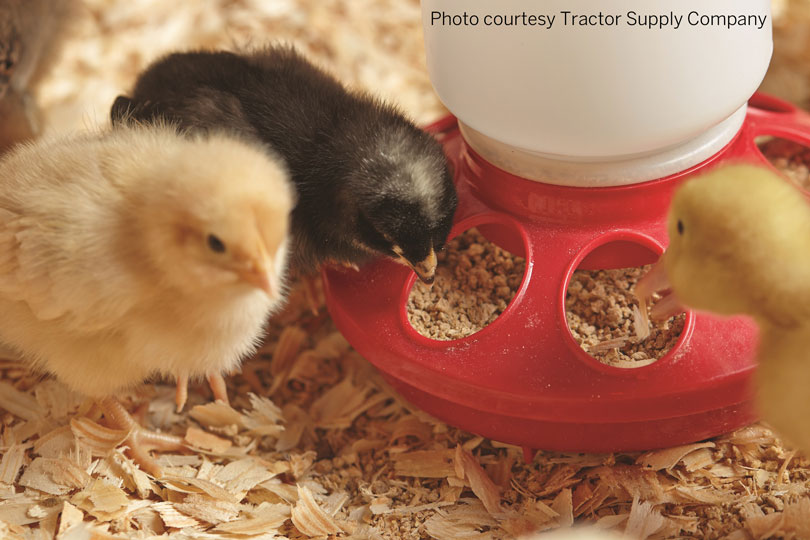By Jessica Domel
Multimedia Reporter
Spring is here, and with that comes the return of chicks and ducklings to feed stores and retailers like Tractor Supply across the nation. While they may be cute and small at first, living animals should not be Easter presents.
“It’s a bad idea to give anybody a live, baby animal for any purpose,” Kathy Shea Mormino, author of The Chicken Chick’s Guide to Backyard Chickens and Tractor Supply Brand Ambassador, said in an interview with the Texas Farm Bureau (TFB) Radio Network. “That practice is actually discouraged and hopefully prevented by the regulations surrounding the purchase of chicks. In most Tractor Supply stores, the minimum number of chicks you can buy is four.”
Before purchasing chicks, it’s important to check city, county and community regulations to see if they prevent backyard chicken raising.
Some communities allow the practice, but limit the number of birds or prohibit roosters.
“(The minimum purchase requirement) is for the safety and welfare of the birds. They are flock animals. They need other chickens to live with. They need other chicks to help keep themselves warm,” Mormino said. “We would never tolerate the practice of giving a live, day-old puppy to a child. Similarly, it’s a terrible idea to consider giving somebody one live chick.”
Raising chicks into healthy hens or roosters requires more than tossing out food and providing water. Chicks need warmth, a safe place to sleep and the right mix of food to meet their growing needs.
Potential chick buyers should talk to feed store staff to ensure they have all they need to take care of chicks through maturity.
“They’re a lifetime commitment. They’re not an Easter basket filler,” Mormino said.
For those families who are ready to take the plunge, raising chickens can be an opportunity for family bonding and serve as a homegrown food source.
Families raising chickens should be prepared to gather eggs every day and ensure the chickens are safely in their coop every night.
“Raising backyard poultry provides parents with so many teachable moments,” Neely Green, Tractor Supply’s national marketing manager, said.
Anyone dealing with chickens also should be mindful of the risk of salmonella infections. According to the Centers for Disease Control, the number of salmonella outbreaks related to backyard poultry continues to climb.
Fifty-eight cases were reported in Texas last year. Most of the cases involved young children.
“Most chickens carry some form of more than 2,000 types of salmonella. Birds are natural carriers, so they do not show symptoms,” Dr. Bob Judd, host of Texas Vet News on the Texas Farm Bureau (TFB) Radio Network, said.”
The risk of infection can be greatly reduced by taking precautions.
“People can be exposed by handling the birds, eggs or just working in the area,” Judd said. “The number one precaution is washing hands after dealing with the birds. Just plain soap and water will be effective or you can use an antibacterial soap.”
Watch children handling chickens to ensure they do not touch their faces or stick their hands in their mouth before washing their hands.
Many diseases are also contagious between flocks. Judd said it is not a good idea to share equipment or coops with others who raise poultry.

